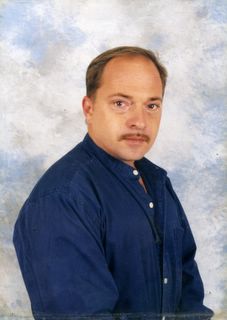By Daniel Taverne
According to Occupational Therapy, occupations are defined as those daily activities performed by individuals that give life meaning and contributes to the person’s over-all sense of life satisfaction. Using this definition, it should be easy to see how much blindness can impact who a person is, what a person does, and ultimately, how a person defines him/her self.
Think about the things you do that are important to you. Are you a parent? Are you a spouse? What work or activities do you engage in outside your home? Answering these questions will point out a few roles you might have. Each of these roles is comprised of occupations which enable each role to be performed successfully. In turn, each occupation is comprised of performance components.
If for instance you perform the role of parent, one of your occupations might be meal preparation. A performance component of cooking a meal is wrist strength. This performance component is important for lifting heavy frying pans, an opening cans and jars. So, poor wrist strength can contribute to an inability to perform the occupation of cooking which in turn could lead to a parent questioning his/her self worth. Now I realize this is a simplistic example, but I think I’m doing a good job of getting the point across.
Keeping the above example in mind, let’s consider the performance components affected by blindness. If a person is newly blind, the size of his/her world is only as large or as small as the space between his body and his outstretched hand. Therefore, if a person’s world is that small, all his occupations are lost in the darkness. This is quite a blow to a persons self worth, and the joy that comes with being one of life’s self determining participants can be lost there as well.
After thinking about this a while, I believe vision in it’s self is a performance component of virtually every occupation performed, especially by those who can see. Fortunately though, because I’m blind, I am discovering there are only a few things the blind can’t perform. For example, I can’t imagine ever driving again, nor do I think I will ever become a catcher for the Atlanta Braves.
The things I can do are surprisingly numerous though, thanks to the assistance of the Veterans Administration, as well as family and friends. For example, in my role of husband I cook dinner since I no longer actually work. In fact, I have overcome most of the barriers that blindness has presented in all my occupations.
The only real difficulty I currently have is a sense of belonging in a role outside my home. It seems I remember hearing pleas for volunteers at various places over the years, and now that I’m looking for a place to volunteer, I cant seem to find a place that will have me.
I suppose my blindness has made me dependant on others to a point that I am very willing to have a symbiotic relationship with almost any organization. They can have my time, benefiting from my desire and strength, In turn, I can derive a sense of belonging that comes with being a part of a collective motivated by a sense of purpose.
So, blindness impacts occupations on a large scale until new ways of performing are found. If you have someone in your life who has recently been blinded, be aware of the persons sense of self and how one’s inability to perform important occupations can diminish self worth, self esteem and self respect. Be there for that person by not treating him/her like a child. Instead, afford the person the same level of dignity you would want if your situations were reversed, by providing love and encouragement.
WATCH; Donald Trump's RNC Speech (FULL VERSION)
-
This is a speech Donald Trump needed to make, and the left immediately
began to characterize it as "dark".
I watched the coverage on PBS and the pundits cr...
9 years ago








No comments:
Post a Comment